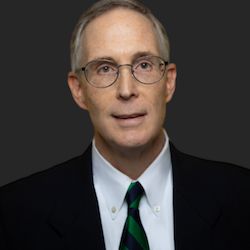One Independent Is Spreading the PRSA Ethics Message to Others
By Tim O'Brien, APR
December 2019
When Anita Parran, principal at KK Charles Communications, moved to Kansas City, Mo., over 30 years ago, she joined several professional organizations, including PRSA. As an undergrad, she had already belonged to the Society of Professional Journalists.
Over the years she has contributed in big and small ways as part of her community involvement, which included serving as an officer and local chapter president for the Association of Women in Communications (AWC), where she presently serves as the national vice chair and membership committee co-chair.
In 2017, during the AWC biannual conference, she planned a session on ethics and noticed the organization did not have its own code of ethics. That’s when she got the idea to initiate an effort to create one.
“AWC didn’t have a code of ethics and never had one,” Parran said. “I thought it was important since journalists and professional communicators have recently come under fire by certain entities in our society over ethics issues.”
Parran said there were times when members wondered why the organization did not make certain statements about events when journalists came under attack.
Setting a solid example
As a result, she stepped up to help AWC develop its own code of ethics, and in the process, she has been working with PRSA’s Board of Ethics and Professional Standards (BEPS) to learn more about PRSA’s history, which provides context on the role an aspirational code of ethics can play.
She is using the PRSA Code of Ethics as a reference for her efforts. BEPS has provided Parran with historical information on how the Code has evolved over the years, currently serving as a tool for both aspiration and education for members.
For her part, Parran has provided a solid example of a model professional. She’s a veteran independent and PRSA member who earned a master’s degree in business management, along with a Certified Communications Professional (CCP) designation from the University of Washington’s Department of Communications.
In addition to her professional work as a communicator and as a journalist, she has been an adjunct instructor for a local university, a certified facilitator/trainer for other trainers in adult learning and community development. And she has been involved in numerous professional organizations as a leader, and as an engaged volunteer in the community.
Creating an ethical standard
The balance that she and AWC are seeking to achieve is to effectively set an ethical standard for professional practice and for member behavior.
“The code we are developing for AWC is a code of ethics, but it’s also a code of conduct for members,” she said. “We want our members to know that AWC fosters an environment for integrity, inclusivity and teamwork, in addition to mentorship and a commitment to our communities.”
Parran said there are differences between what AWC is trying to achieve and how PRSA has framed its Code of Ethics as an inspirational and educational tool for the practice of communication, but in the end, the larger objectives are similar.
“We want to make sure that our members know where AWC stands on certain expectations of members, but even more important, that members themselves are properly thinking about and taking seriously their own ethical conduct,” she said.
photo credit: shutterstock



